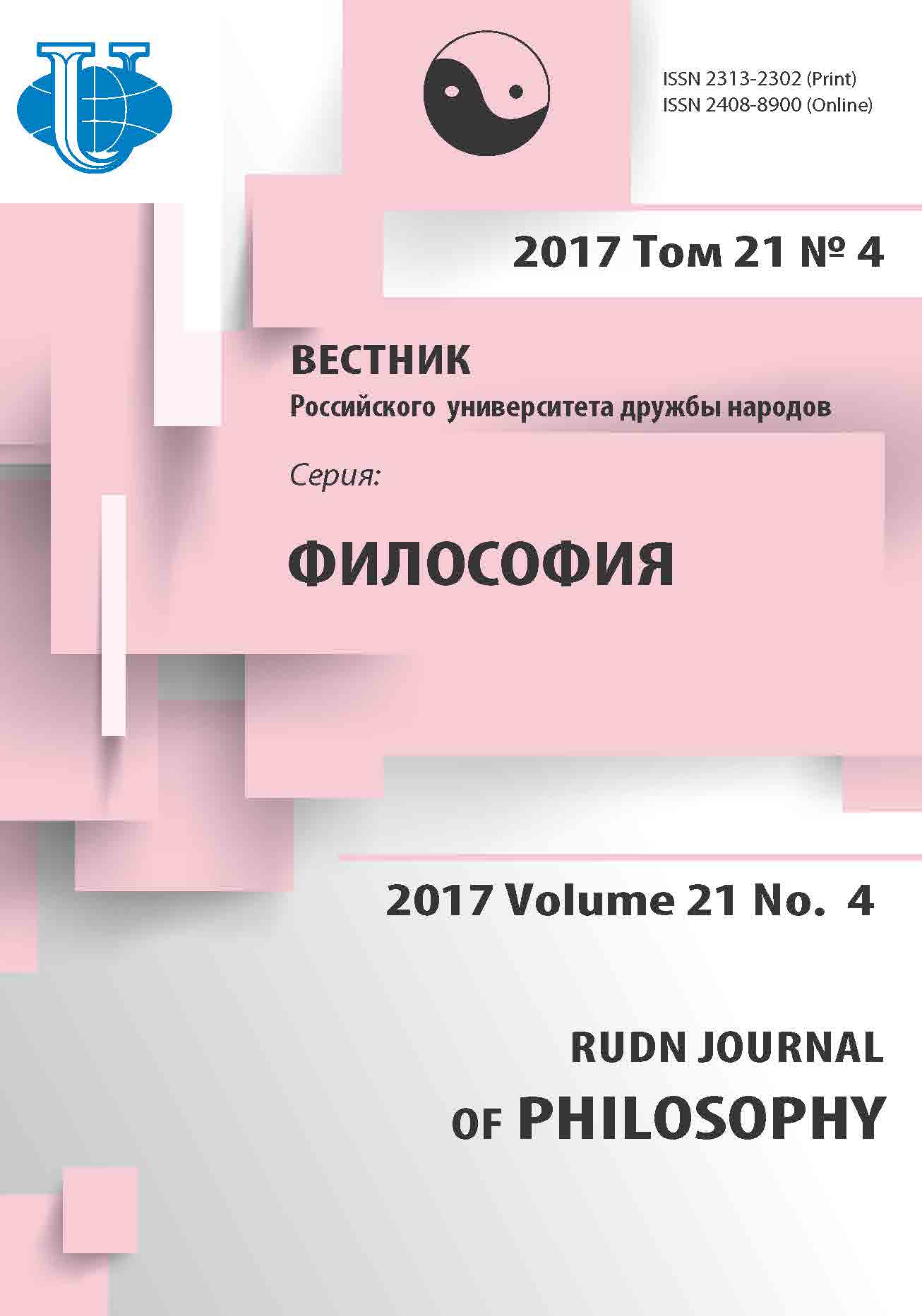SPACE, TIME AND MOTION - PARADIGM SHIFTS
- Authors: Panov VI1
-
Affiliations:
- FGBNU «Psychological Institute of Russian Academy of Education»
- Issue: Vol 21, No 4 (2017)
- Pages: 572-581
- Section: Articles
- URL: https://journals.rudn.ru/philosophy/article/view/17668
- DOI: https://doi.org/10.22363/2313-2302-2017-21-4-572-581
- ID: 17668
Cite item
Full Text
Abstract
The paper shows the influence of physical concepts of space, time and motion on psycho-logical research of perception. The data of the experimental study of the formation of the concepts of time and speed, conducted by J. Piaget at the request of A. Einstein, are given. Ontological, physical-absolute and physical-relative paradigms of the notion of time are designated. The example of Zeno's aporias shows the methodological limitations of the epistemological paradigm in the psychology of perception. It is asserted that human thinking is not capable of direct interpretation of time, since the idea of duration is mediated in our thinking by representations of spatiality. As an alternative to the epistemological paradigm, the principles of the transcendental paradigm of the psychology of perception of A.I. Mirakyan are ex-pounded: form-generation and structural-procedural anisotropy. As an example of the implementation of these principles, a description of the generation of spatiality and duration at the sensory level of perception is given. The conclusion is made that in the methodological plan, psychology and physics are united by the common methodological search necessary for understanding space, time and motion. In the long term, there must be a paradigm shift: from the epistemological paradigm towards the ontological paradigm, and also from the priority of physical representations towards the psychological notions of space and time.
About the authors
V I Panov
FGBNU «Psychological Institute of Russian Academy of Education»
Author for correspondence.
Email: ecovip@mail.ru
Панов Виктор Иванович - доктор психологических наук, профессор, член-корреспондент РАО, заведующий лабораторией экопсихологии развития и психодидактики ФГБНУ «Психологический институт РАО»
9, building 4, Mokhovaya Str., 125009, Moscow, Russian FederationReferences
- A.I. Mirakyan i sovremennaya psikhologiya vospriyatiya: sbornik materialov nauchnoi konferentsii (30 noyabrya — 1 dekabrya 2010 g.). Morina NL, Panov VI, Shukova GV, editors. Moscow: URAO «Psikhologicheskii institut»; Obninsk: IG-SOTsIN; 2010. (In Russ.) Bor N. Atomnaya fizika i chelovecheskoe poznanie. Moscow: Izdatel'stvo inostrannoi literatury; 1961. (In Russ.)
- Vundt V. Osnovy fiziologicheskoi psikhologii. Vol. 2. Saint Petersburg; 1912. (In Russ.)
- Geizenberg V. Filosofskie problemy atomnoi fiziki. Per. s angl. i predisl. ko 2-mu izd. Ovchinnikova NF. Moscow: URSS; 2004. (In Russ.)
- Gibson Dzh. Ekologicheskii podkhod k zritel'nomu vospriyatiyu. Moscow: Progress;1988. (In Russ.)
- Zenon. In: Fragmenty rannikh grecheskikh filosofov. Vol. 1. Moscow: Nauka; 1989. p. 298—314. (In Russ.)
- Mirakyan AI. Kontury transtsendental'noi psikhologii. Book 1. Moscow: Izdatel'stvo «Institut psikhologii RAN»; 1999. (In Russ.)
- Mirakyan AI. Kontury transtsendental'noi psikhologii. Book 2. Moscow: Izdatel'stvo «Institut psikhologii RAN»; 2004. (In Russ.)
- Oshanin DA. Predmetnoe deistvie i operativnyi obraz. Moscow — Voronezh; 1998. (In Russ.)
- Pavlenko AN. «Prostranstvo vremeni» (SoT) ili «vremya prostranstva» (ToS): kommentarii na model' vremeni G. fon Vrigta. RUDN Journal of Philosophy. 2017;21(2):179—191. (In Russ.)
- Panov VI. Neposredstvenno-chuvstvennyi uroven' vospriyatiya dvizheniya i stabil'nosti ob"ektov. Voprosy Psykhologii. 1998;(2):82—107. (In Russ.)
- Panov VI. Paradoksy izucheniya psikhiki i vozmozhnost' ikh preodoleniya. Natsional'nyi psikhologicheskii zhurnal. 2011;1(5):50—54. (In Russ.)
- Piazhe Zh. Psikhologiya, mezhdistsiplinarnye svyazi i sistema nauk. In: ХХVIII Mezhdunarodnyi psikhologicheskii kongress. Moscow; 1966. (In Russ.)
- Rok I. Vvedenie v zritel'noe vospriyatie. Moscow: Pedagogika; 1980. (In Russ.)
- Wertheimer M. Drei Abhandlungen zur Gestalttheorie. Erlangen: Verlag Philosoph. Acad.; 1925.
Supplementary files















